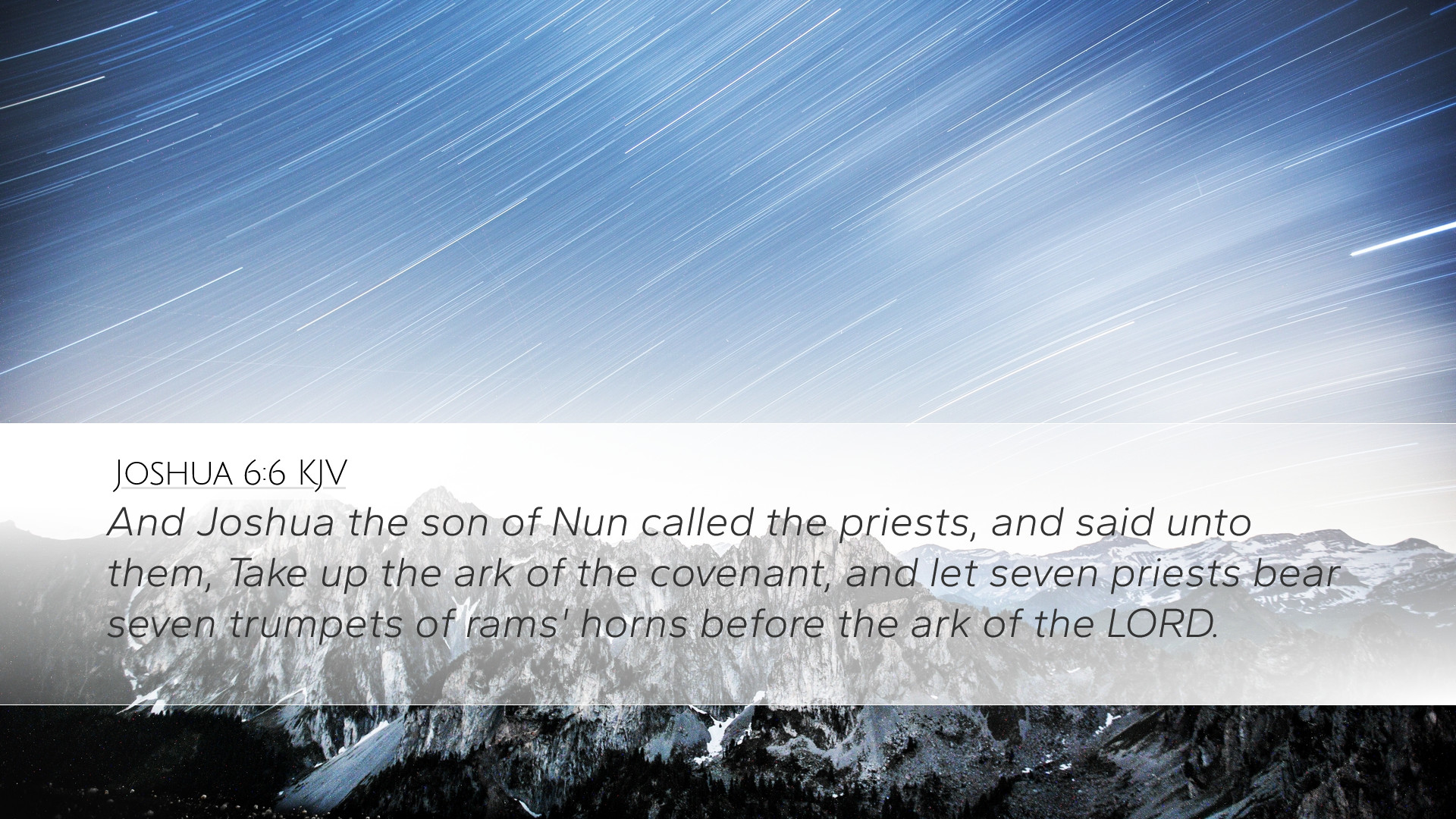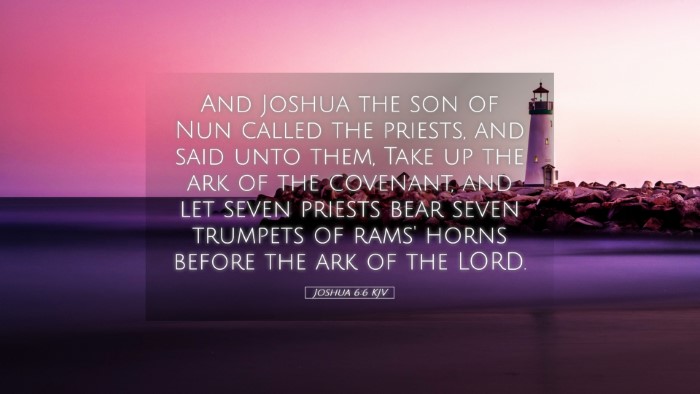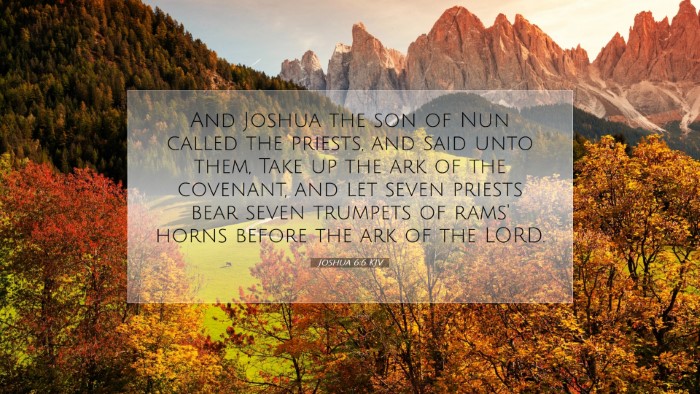Commentary on Joshua 6:6
In this crucial moment in the narrative of the Israelites' conquest of Canaan, Joshua, the appointed leader, receives clear instructions from the Lord regarding the siege of Jericho. This verse, while brief, serves as a pivotal point in conveying themes of obedience, faith, and divine intervention. Below is a synthesis of insights drawn from notable public domain commentaries.
Contextual Overview
This verse is set within the broader context of the miraculous fall of Jericho, a city that stood as an emblem of the obstacles faced by the Israelites. The command to Joshua is a turning point, showcasing the divine blueprint behind Israel's military strategy. Here, Joshua stands as a mediator of God's intentions, emphasizing the covenantal leadership he embodies.
Exegesis of Joshua 6:6
Text: "So Joshua the son of Nun called the priests, and said unto them, Take up the ark of the covenant, and let seven priests bear seven trumpets of rams’ horns before the ark of the Lord." (Joshua 6:6, KJV)
Leadership and Obedience
Matthew Henry highlights the importance of Joshua’s role as a leader who actively seeks divine guidance. He notes that leadership requires not just authority but also the humility to follow God's instructions. By summoning the priests, Joshua shows an understanding of the necessity for spiritual leadership alongside military action.
- Call to Action: Joshua does not hesitate in his command but takes immediate action, reflecting a faith that is proactive.
- Covenant Emphasis: The Ark of the Covenant, representing God's presence, is central to Israel's identity and mission, reminding leaders and congregations of the need to keep God at the forefront.
The Significance of the Ark
Adam Clarke elaborates on the Ark of the Covenant as a vital symbol of God's promises and guidance to Israel. For Clarke, the Ark's presence in the battle signifies that victory is achieved not through might but through a reliance on God’s faithfulness.
- Symbol of God's Presence: The Ark was not merely a physical object but a representation of God's dwelling among His people.
- Divine Strategy: The approach to Jericho, involving the Ark and priests, indicates that the battle belongs to the Lord, enhancing the message of reliance on divine strategies rather than human plans.
The Role of the Priests
Albert Barnes comments on the selection of seven priests to bear seven trumpets, signifying the completeness and perfection of God's plan. The priests’ involvement in the military campaign highlights the blending of sacrificial worship with the act of war, emphasizing that every action of the Israelites is to be punctuated with remembrance and reverence towards God.
- Spiritual Leadership: The priests perform a dual role by symbolizing both the spiritual and communal aspects of the Israelite society.
- Seven Trumpets: The use of seven trumpets has prophetic connotations, invoking themes of proclamation and worship, inviting the people to engage in an act of faith.
Theological Implications
This verse not only serves a historical narrative but also functions as a theological treatise for the people of God. It illustrates the fundamental belief that God's moves through history are orchestrated through human agents who are obedient to divine commands. The engagement of spiritual leaders in secular battles can be seen as a model for church involvement in societal issues today.
- Obedience to God's Commands: This reflects the call for believers to act in faith, understanding that human strategy must be undergirded by divine direction.
- God's Sovereignty: The unfolding events validate God's sovereign control over history, thereby reinforcing the concept of trusting in His will.
Practical Application for Today’s Leaders
Pastors, students, and church leaders can draw several lessons from Joshua 6:6:
- Engage in Spiritual Discernment: Like Joshua, leaders are called to actively seek God’s guidance in planning and executing their mission.
- Redefine Success: Success should be measured not by external metrics but by faithfulness, obedience, and God’s presence among us.
- Unity in Worship and Warfare: There is a need for a collective understanding that worship and the mission of the church are intertwined; spiritual leaders must lead congregations in both realms.
Conclusion
The brief yet profound command given to Joshua illustrates the powerful intersection of faith, leadership, and divine participation in the life of an entire nation. The charge to take up the Ark of the Covenant and the instruction to employ the priests signal a moment rich with theological significance and practical application for believers today.


